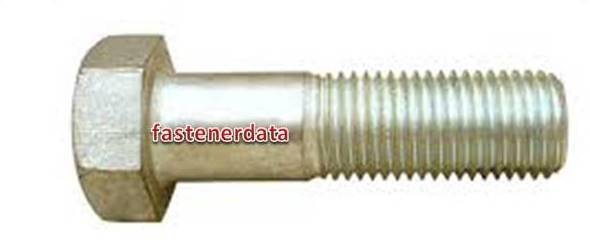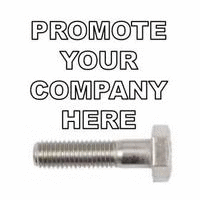Cadmium plated Fasteners
Fasteners Cadmium Plated
Fasteners have been coated in Cadmium plate since the early 1800's, by the 20th century it was the most popular electroplated finish giving superior surface protection and lubricity compared to zinc plate fasteners. Cadmium can take chromate passivation of many colours. Cadmium is rarely used today due to its toxicity and environmental non-acceptability. The aircraft industry is one of the last users of cadmium; Cadmium is a sacrificial coating for steel, it's galvanic characteristics are compatible with aluminium.
Screws Cadmium Coated
Cadmium plating offers extraordinary bonding surface for adhesives, such as those increasingly used in aeroplane manufacturing, and is the preferred coating for salt-water environments. Additional advantages of cadmium plating include low electrical resistance; outstanding conductivity; superior solderability; favourable galvanic coupling with aluminium aircraft frames; and excellent natural lubricity, which results in prevention of thread galling and a low coefficient of friction. Furthermore, the corrosion products of cadmium are less significant than those of other plated coatings such as zinc. These characteristics are especially useful in applications where components will be repeatedly disassembled and reassembled, such as in the scheduled maintenance of aircraft. The need for cadmium plated screws continues to be critical to the aerospace industry. The toxicity of Cadmium plated screw surfaces ensures they resist mould or bacteria growth.
Fasteners Cadmium Coated Applications
Aerospace: corrosion protection on flight-critical components.
Transportation: disc brake components, and door latches
Electronics: connectors, relay screws and chassis screws.
Consumer Products: window screws and construction fasteners.
Marine: fasteners and C class components exposed to fresh and salt water
Cadmium fasteners compared to zinc fasteners
Cadmium retains its original appearance longer than zinc and is superior to zinc in marine and industrial environments. Cadmium's lubricity makes it preferable for moving parts. Cadmium plated fasteners have a useful service temperature limit is 450F, while zinc's is 250F.
Cadmium Coated Fasteners
Cadmium plating gives fasteners a silvery-white metallic look with excellent corrosion resistance. The metal is also acceptably hard and very ductile making it useful as a coating for bolts and screws that require flexibility. The Cadmium coating is electropositive to iron and has a very low contact potential with aluminium in airframes. Cadmium plate being a controlled toxic substance can only be used in specific applications
Cadmium screws Environmental impact
While cadmium plating offers engineering properties that have yet to be matched by a single finish, it is toxic.
NASA Cadmium Coating Comments
https://nepp.nasa.gov/npsl/prohibited/cadmium_prohibition.htm
Fastener Coating Links
Fastener Electroplate Coatings Fastener Surface Conversion Fastener Spray Dip Coatings




